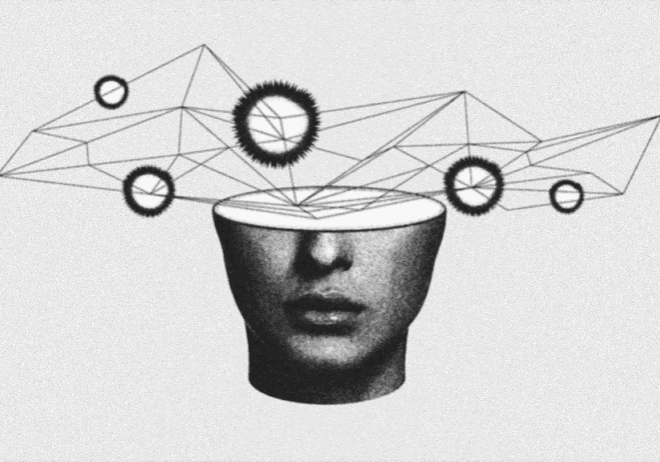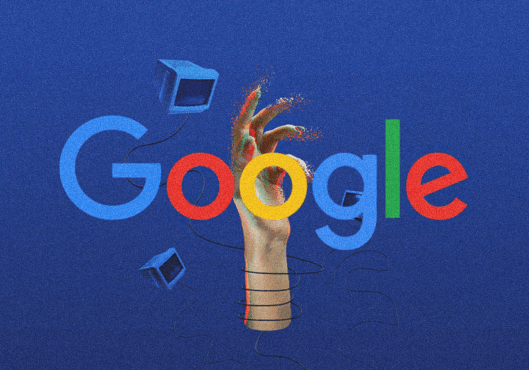
What Happens When AI in Social Media Redefines Advertising?
You’re scrolling through social media, and suddenly, an ad for the exact sneakers you searched for last week pops up. And sometimes your feed is filled with different brands’ ads offering “can’t-miss deals.” It’s no coincidence —it’s the invisible hand of AI in social media algorithms working behind the scenes to choreograph your experience.
Social media advertising is more than just a marketing strategy; it’s a masterclass in blending technology with psychology. But what’s really happening behind the scenes, and how is it changing the way brands and consumers interact? Let’s dive in and unpack what algorithms signify for the future and delve into the amazing world of artificial intelligence in social media advertising.
Brands are making campaigns smarter and more effective with AI
AI algorithms are full of benefits and segregated predictions that not only help brands to come with personalized advertisements, but they also know what to offer and where to draw in customers. Whether you’re a startup experimenting with Facebook Ads or a major brand running TikTok campaigns, AI offers unparalleled opportunities to connect with audiences. But as with any tool, its true potential lies in how you use it. Here are a few clever and useful advantages AI offers to brands:
Hyper-Personalization at Scale: Gone are the days of generic ads. AI ensures every ad feels tailor-made for its audience. For example, Netflix’s recommendation engine doesn’t just suggest shows—it inspires users to binge-watch. Similarly, AI in ads serves you content you’re already primed to love.
Better ROI for Advertisers: Ads powered by AI are more effective at focusing on users who are likely to convert, reducing waste ad spend. Small businesses are thriving as AI levels the playing field by providing them with affordable tools for data-driven campaigns.
Real-Time Adaptability: AI algorithms analyze ad performance in real time. If a campaign isn’t performing, tweaks are made instantly—new creative elements, better timing, or adjusted targeting—all without human intervention.
Are we approaching the year of “too much AI?”
AI-powered algorithms may seem like a marketer’s dream, but their growing sophistication raises serious questions. From privacy concerns to reinforcing biases, these “intelligent” systems sometimes blur the line between helpful and invasive. Are they empowering advertisers—or crossing ethical boundaries? Let’s check the points:
The Privacy Conundrum: AI thrives on data, but where does the line between “useful insights” and “creepy surveillance” blur? Many users feel uneasy knowing that platforms track their every click. The rise of cookie-less tracking and evolving privacy laws like GDPR and CCPA are forcing advertisers to rethink their strategies.
Algorithm Bias: AI algorithms are only as unbiased as the data they’re fed. If the data reflects stereotypes or skewed societal norms, the resulting ads can unintentionally perpetuate biases. For instance, job ads for certain roles might disproportionately target specific demographics, sparking ethical debates.
Over-Personalization Fatigue: At some point, hyper-personalization can backfire. Seeing overly tailored ads repeatedly can feel invasive, causing users to disengage or even block ads altogether.
The marriage of AI and human creativity in the future of social advertising
AI has revolutionized social media advertising by processing massive datasets and predicting user behavior with remarkable accuracy. However, it lacks the emotional intelligence and cultural nuance that make campaigns genuinely relatable. The most successful strategies harness the analytical power of AI while blending it with human creativity. For example, Spotify Wrapped uses AI to analyze user data and transforms it into emotional, shareable stories that resonate deeply with audiences.
Looking ahead, the integration of AI with emerging technologies like augmented reality (AR) and voice search will redefine ad experiences. Platforms like Instagram and Snapchat are already experimenting with AI-driven AR tools, allowing users to virtually try on products or visualize furniture in their homes through their phone cameras. Similarly, the rise of smart speakers and voice assistants will push advertisers to optimize campaigns for voice search. Imagine asking Alexa to order a latte and being presented with personalized Starbucks deals.
At the same time, ethical AI practices will take center stage as privacy concerns grow. Transparent algorithms and user-first approaches will become essential for maintaining trust and ensuring that advertising remains both innovative and responsible. By balancing AI’s technical precision with human empathy and ethical considerations, the future of social media advertising holds boundless potential.
Cut to the Chase
AI in social media advertising is no longer the future—it’s the now. For marketers, success lies in embracing AI’s power, balancing data-driven insights with creativity, and staying transparent. The next time an ad feels eerily perfect, remember—it’s not magic, it’s AI, and it’s just getting started.


